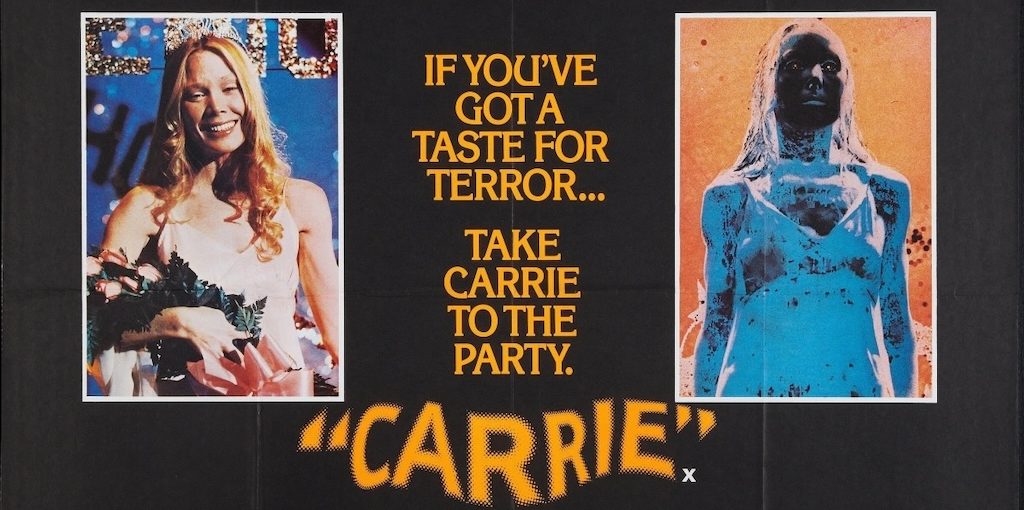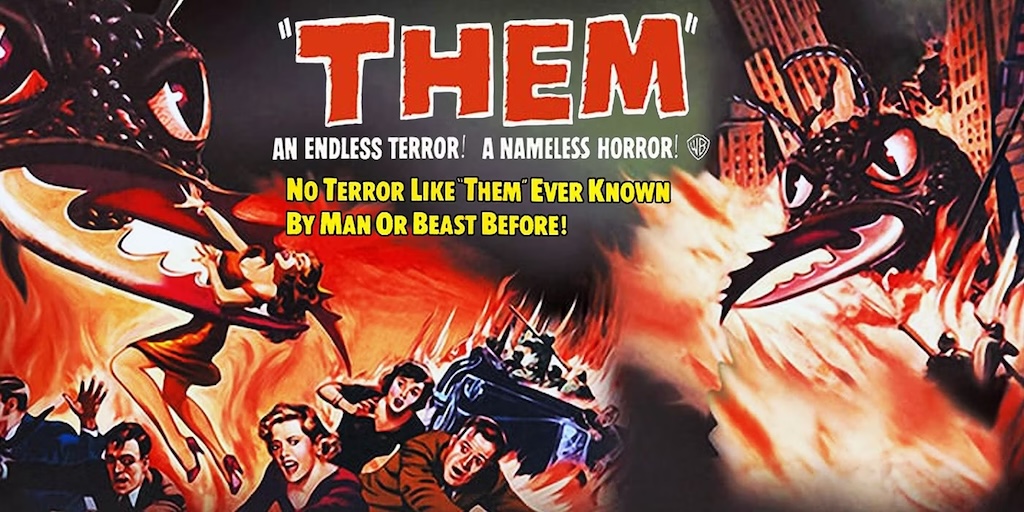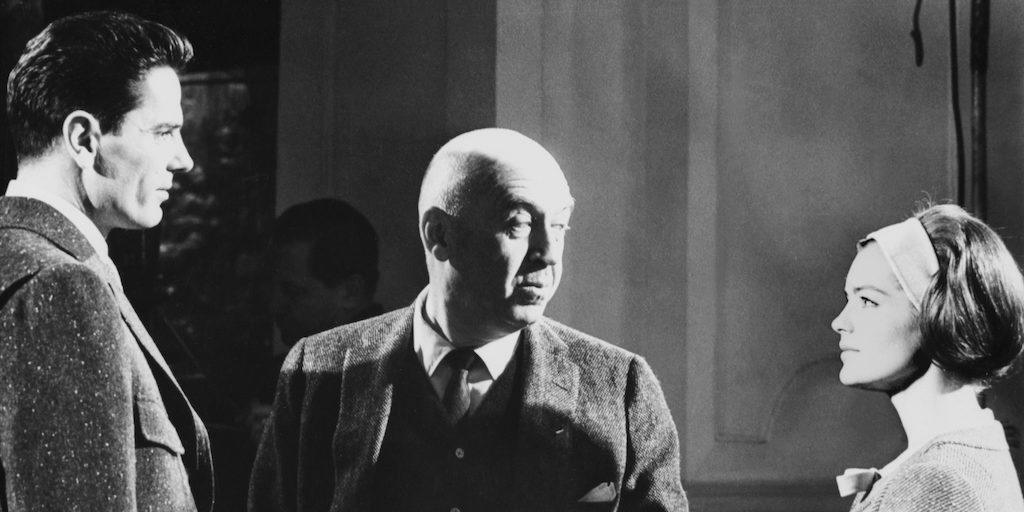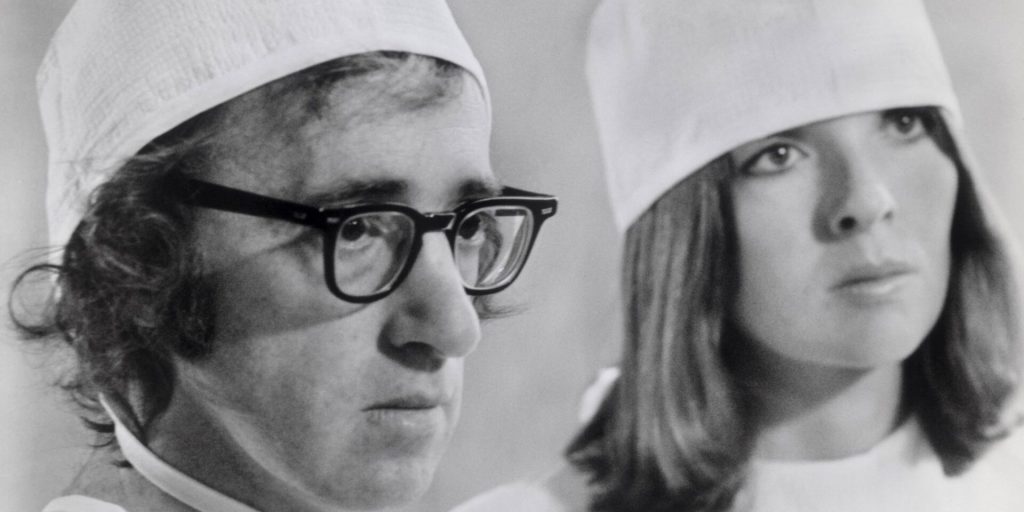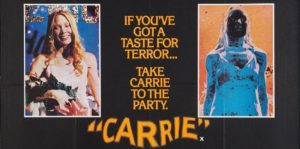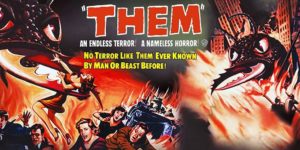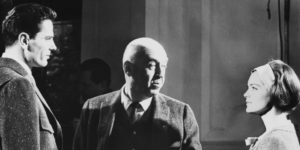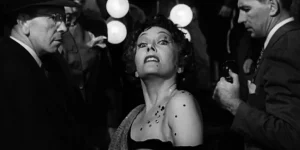“God had turned his face away and why not?
This horror was as much His doing as hers.”
From Carrie, by Stephen King
There are movies that conquer us like if we were virgin planets, or discover in our depths feelings that were unknown even to ourselves. Carrie is one of them.
It is not difficult to define a classic once time passed by and there it is, still persisting. What is difficult is to define why a movie “will become” a classic. And what makes a certain work essentially a classic is the level of strength with which defines certain issues that are unavoidable for any human being. It is because of that we are all taken with it, sometimes knowing how to explain it, some other times leaving us taken aback, and even some other times not wanting to acknowledge it out of shame, surprise or fear.
There are elements that define Horror classics. These are archetypes and topics that articulate the arrival of the sinister as a threat. But Carrie breaks with that mold, because she (the character, not the film) is the one incarnating evil. She annihilates everyone and sets everything on fire. She is evil… or… giving it a thought… perhaps she is different. Or maybe she is not the only one to personify it. Or maybe there are a lot of evils… Or perhaps amidst all this mess can be found the key on why Carrie is a classic.
The movie starts with a construction of beauty and an ideal world which, although we did not think it (and once we laid eyes on those images), we want to belong. It is what happens to Carrie, or that is what we are going to find out. But nothing or no one has those plans for her. While the other girls live an ideal life, she bleeds out. She does not know what is happening to her, so, she bleeds out. She walks out of the shower, just like that, oozing blood, desperate, turned into an invading monster of the perfect world. The perfect ones are horrified and run away. “Help me”, begs Carrie. They throw tampons at her, which she does not know what they are used for.
“I haven’t sinned” she tells her mother. “Why didn’t you tell me?” Her home, that should be a safe haven, becomes a prison. Carrie must pay for the simple sin of being. A Christ with the hairs and eyes of her mother observes her in an inquisitive manner. Christ, once again, now in the mirror of her room, continues to observe her. She breaks the mirror with the power of her mind. The split Christ continues to observe her on the other side of the mirror, broken. Despite the power she has, Carrie feels like a freak. She is. Everybody makes sure to point that out.
We begin to fear for Carrie, not of Carrie. Does De Palma want to make a horror film? Or is he taking us into a different journey?
Stephen King’s original novel presents some kind of fictitious non-fiction with quotes of fake interviews, extracts of invented court transcripts and apocryphal books that place the point of view from Carrie’s victims. Yet what it smartly does (though King does not like adverbs ending in “-ly”) is to build statements on someone that cannot defend herself anymore. They are testimonies of a future that attempts to get over a tragedy which left few survivors. And Carrie is not one of them, quite the contrary, she is pointed out as victimizer.
The cinematic truth is different. The abuse subjected upon Carrie is constant, the violence is unstoppable; nothing is good for her. We, the audience, become uncomfortable as someone who spies would, although with the relief that the pain is someone else’s. The invitation to prom does not change things. Everybody, Carrie and us, suppose that the matter with Tommy Ross is about a prank. It does not matter that the proposal came from the guilt-ridden Sue Snell. Tommy is up to something; he is not inviting her just out of commitment. Is it possible for a dream to become true in a life full of nightmares? Carrie says no, he cajoles her and she ends up accepting. Nothing in Carrie (the film, not the character) happens out of desire. Everything is obligation, punishment and repression, but is also guilt and perverse ambition (like Chris and Billy’s plan for the ultimate prank)
“I’m weird and I want to be normal”
“You got Satan’s power”
“No. It’s me”
Carrie makes it to the prom with Tommy Ross. They look like the perfect couple at the perfect ball. Everything is tenderness. Carrie is no longer a freak, she is what she always wanted to be.
Not for long.
In his adaptation, De Palma names the school “Bates High”. Just like the hotel that slain people in Psycho (Hitchcock, 1960): this school does not instruct the students, it is inverted, it represses them and turns them into stalkers and murderers. It is enough to see how Chrissy has fun while Billy hammers the pig to death, whose blood now waits on a bucket atop a girder. In the meanwhile, we see Carrie happy and, knowing that everything was a plan she does not know, we get sad, we feel sorry for her. But can we feel sorry for someone who personifies evil? Or better said, can we still be thinking at this instance that Carrie personifies evil?
Evil in a horror film should disrupt to provoke fear in us, but when the bucket with pig’s blood is emptied on Carrie and she, humiliated, displays all her telekinetic rage, we do not feel fear, we applaud vengeance. It is, at least, curious where De Palma puts us. We applaud death, we thank that Carrie can destroy everything. We celebrate, though we will never admit it. We really do. And it is at that moment when De Palma reaches a cinematic milestone. Where he makes a classic.
What follows is tragic, not necessarily terrifying. We enter waiting for horror, we leave with a bloody coming of age whose way out is not a new life, but death. Carrie walks drenched in blood among the fire, very calm. As if that were home. As if she were inhabiting hell. In the prison that should be called home, her mother awaits hidden, dressed in white, ready to kill her. But Carrie decides that the end should come for both, and for that hell with a roof to cave in over them.
Carrie is the true victim in this story and De Palma deceived us, but we thank him for it. It was a necessary deceit, a lesson, to find ourselves living the bullying with Carrie without really setting our minds to it, to feel different and excluded, to live the horrors of adolescence, the deformation, the hostility of the adult world and the incomprehension of pain. But we survived, like Sue did. And also like her we will have nightmares with Carrie, as if suffering by her side was not enough, we have to pay for having bear witness, for being a little bit like the bullies from our comfortability on the other side of the screen.
Carrie White burns in hell. And we burn with her.

